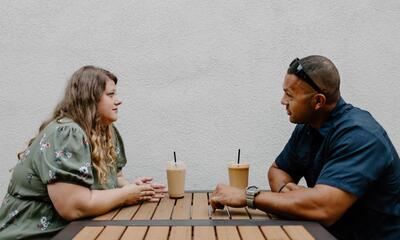Why Do We Judge Others?

No matter how much we think we shouldn’t judge others, we are conditioned to do it. Making quick judgments can lead to regrets. We narrate and share stories about others – usually without most of the facts. We know that caution should be used when making judgments about someone’s character or choices. Largely these are based on surface information leading to skewed impressions and outright mistakes. The result? Damage – personally and relationally!
Without increasing our self-awareness of why and how we judge, we are destined to repeat these mistakes over and over again. Following are 5 tendencies that ambush our better selves
“If you judge people, you have no time to love them.” Mother Teresa
1. Look for the “halo effect” and its counterpart.
If someone has a few positive traits then we tend to see them more positively as a whole. The opposite is also true. If someone has impressed us with a few negative traits, our overall impression will tend to be negative. Let’s call it the “horns effect.” The halo effect would say, “He is an outstanding speaker. I’m sure he would make a great CEO.” Not necessarily!
Who hasn’t had the experience of forming a negative impression and saying, “I don’t like that person?” Then once you get to know them they become a good friend. The problem is that once we make up our minds about a person’s character, it’s difficult to change (the horns effect). We can even do things that make that person react to us in the way we are judging them. You think someone is a snob so you don’t acknowledge them. In turn, they don’t acknowledge you, which validates your judgment that they are a snob! Knowing this tendency will help us judge fairly, patiently, and compassionately.
2. Jumping to conclusions is our default mode.
A wise person once said, “Jumping to conclusions is the only exercise some people get.” We tend to ascribe certain traits to others. This is a convenient necessity at times. We assume someone is friendly, or unfriendly; kind or unkind; cautious or aggressive. This can be very helpful as we navigate the world around us, whether on vacation, at work, or in a social setting. But as with any asset, there is the possibility of error. We assume certain characteristics about others. To not recognize this leads to the counterproductive habit of conclusion jumping.
3. Looks can be deceiving.
Below the surface, people tend to judge others based on their own fears. When we look at someone for the first time we see a reflection of our past experiences and associations. It could be from their body language, or the way they dress and behave. It is insightful to be aware of how our past can affect our present thoughts about someone else. This helps us spot clues to false or premature judging.
4. Beware of the Fundamental Attribution Error.
We tend to attribute our behavior to environment and other people’s behavior to character. It’s easy to judge others based on our immediate observations. Rather than saying, this is a situation they are going through, we tend to think they are always like that. So when I see someone grab their child in the grocery store, my first impression is that they are a bad parent. Yet when I grab my child it’s because they need to be disciplined. I attribute their behavior to character and mine to environment. Ironically, the better we know the individual, the more flexible and less judgmental we are of their behavior. Just think of what you attribute to the strangers driving the cars all around you. How does that change when you recognize who they are? Whoops!!
5. What you say about others says a lot about you.
Those who judge harshly usually have less room to talk.
“When you judge another, you do not define them, you define yourself.” Wayne Dyer
Scripture advises us not to harshly judge one another. “In the same way you judge others, you will be judged. Why do you look at the speck of sawdust in your neighbor’s eye? First take the plank out of your own eye, and then you will see clearly to remove the speck from your neighbor’s eye.” (Matthew 7:2-5)
It is necessary to make judgments in the routines of life. But the primary judgments should be for ourselves. When judging others, we should be especially careful. Judging goes much deeper into our own psyche than we think.
When we judge, we are implying certain conclusions about ourselves. Harsh judgments are often tailored to affirm a positive self-image. The lofty judgmental announcements promote the notion that we are wonderful, lovable human beings.
Pause and Reflect
- When is the last time you formed an impression of someone before you really got to know them?
- Do you remember those times when someone judged you when they barely knew you?
- What did it feel like when you were judged or misunderstood?
- What changed for you when someone showed you compassion or extended forgiveness?



